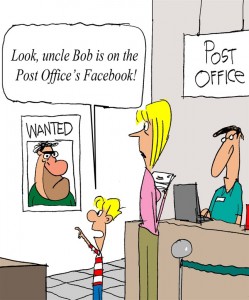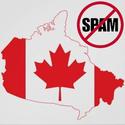
- Posted on June 16, 2014
- in Blog, Email Marketing, Opinion
Using Facebook Profiles For Business Means Breaking The Law
On July 1st the Canada Anti-Spam Legislation will come into effect with new rules and hefty, potential fines.
I have written a couple of posts about this already:
Don’t Get Caught – Canada Anti-Spam Legislation and LinkedIn
Webinar Recording: The Canadian Anti-SPAM Legislation
Canada’s New Anti-Spam Legislation has Some Teeth

And I have collected a list of CASL resources that I will share at the end of this article.
CASL is designed to fight SPAM that originates in Canada and can be read in Canada. This law regulates all Commercial Electronic Messages (CEM). This goes far beyond mass email spam and covers any message a reasonable person can interpret as commercial in nature regardless of the intent of the message or even if it was sent by a non-profit
- Newsletter style emails
- Regular emails
- Social Media messages
- Tweets
- Facebook posts
- LinkedIn Updates
- Instagram pictures
- Text messages
Early statements from the big Social Media platforms state that they conform to the CASL requirements already: Users give express consent to receive messages and there is an easy opt-out option.
I don’t think the platforms will get off the hook that easily. We will likely see updates to the Terms of Service agreements.
Depending how you use the Social Media tools there are two pitfalls that come to mind even without challenging the law:
- LinkedIn InMail that are sent to members outside of your network are CEMs and fall under CASL. Read more
- Using Facebook Profiles to promote your business or cause is not only against Facebook’s terms of service but also against CASL
Why using Facebook Profiles for business is breaking CASL laws:

Image Depositphotos
Let me make sure we are talking about the correct face of Facebook (many are confused about this): Your Profile is where you connect with your personal friends. To see each other’s updates you have to mutually opt in by accepting a “Friend request”.
This is very different from using a Facebook Page that is openly visible for anybody and we can subscribe to (commercial) updates by “liking” the page. As long as your Facebook Page clearly states the type of commercial updates the subscriber will receive, you are safe.
“Personal Timelines, which we sometimes refer to as profiles, are for individual, non-commercial use. They represent individual people and must be held under an individual name. You can follow Timelines to see public updates of people you’re interested in but aren’t friends with.”
I still see businesses and organisations use Facebook Profiles for business.
Yes, it is easy to opt out of receiving CEMs from your friends - you can simply hide their updates or unfriend them all together. But that is not enough - If I agree to be your friend on Facebook, I do NOT expect to receive commercial messages!
Well, if you know me you know that I sometimes can’t help myself sharing some of my Facebook Page updates because I am passionate about my business. I don’t think there is much danger of being reported to the CRTC or the Competition Bureau as long as I keep this practice limited to “once in a while”.
But if you use Facebook Profiles for your business you are in violation of CASL! Friends can not reasonably expect commercial messages because Facebook’s TOS do not allow you to post CEMs
As I mentioned above I don’t have any legal training and my interpretation of the law is based on what I learned in the last couple of weeks. I have written about the topic on this blog and as a guest on a business column. As a Constant Contact ALE I have done several presentations and webinars on the topic.
There are other good reasons not to use Facebook profiles to promote your business or cause but as of July 1st 2014 you will be breaking Canadian law.
















